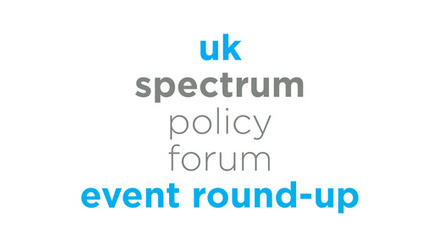Ofcom issues call for input on the use of fixed wireless links
Ofcom is seeking input from industry and stakeholders on the capability for the use of fixed wireless links and the motivating factors to its choice over alternative technologies. The objective is to gather information that helps develop the regulator’s spectrum management activities.
Interested parties have until 17 January 2024 to offer their feedback and inputs to Ofcom.
Spectrum demand and the role of fixed links
With the growth in the roll out of fibre and a lower latency offered by satellite networks, there is the possibility that fixed links will be restricted to complementing alternative services rather than the underlying structure for backhaul services to mobile networks.
In its Call for Input, Ofcom reveals that higher bands are increasingly more feasible to be used by a growing range of applications. As technology develops, the telecommunications authority aims to move towards a more efficient use of spectrum, including an update to its views on the demand for fixed wireless links. The review aims to inform regulatory short- and long-term work regarding the future demand for spectrum.
In the UK, fixed wireless links use a range of frequency bands from 1.4GHz to 83GHz. Nevertheless, the growing demand for connectivity is shifting the use of traditional fixed link occupied bands for alternative connectivity solutions.
Fixed links characteristics
Fixed wireless links provide connectivity for voice or data traffic in a quick, cheap, and easy to deploy manner. In some cases, it offers a lower latency than fibre, supporting this and other types of networks, spanning across sectors.
- Mobile network operators
- Broadband
- Telecoms
- Public safety
- Utilities
- Financial sector
- Broadcasting
- Public services
- Oil and gas
- Transport
Despite its large use case applicability and growing bandwidth usage, the total number of fixed links is decreasing. According to Ofcom, the reduction is higher than 25%, meanwhile aggregate bandwidth use by fixed links has increased above 50%. This decrease is perceived across all frequency range, except for the 70/80GHz band, where the number of fixed links has spiked since 2016.
Broadband providers, financial services, public safety, and utilities are among the group of sectors where fixed links have increased. It means that the main driver of the decrease in the use of fixed links is the decline in deployments by Mobile Network Operators. Removing this trend from the overall analysis, the use of fixed links has in fact increased by 24% according to Ofcom’s licensing data.
Another group of noteworthy trends are outlined below.
- Fixed links are declining in bands between 10-38 GHz;
- Bands below 10 GHz show a small increase in fixed links, but the largest increase in the number of fixed links appears in the 70/80 GHz band;
- Across geographies, fixed links are declining, which is accentuated in urban areas and demonstrating some growth (small number of links) in rural areas and at network edges.
Market development and industry interest
Government targets aim at achieving a close to full access to gigabit broadband by 2030. These goals will be achieved through investment and roll-out of fibre for mobile backhaul network. Fixed links users such as mobile operators prefer fibre for its capacity over fixed links. However, there are situations where the cost of fibre is unattractive, as well as hindered by the physical characteristics of urban areas.
The upper 6 GHz band is a key access point for industry and will occupy discussions at the World Radiocommunication Conference (WRC-23). Ofcom has recently closed a consultation on the matter and will bring to the international debate its perception on hybrid sharing between the higher power licensed mobile and lower power licence exempt use.
Industry views on the potential use of 6 GHz for licensed and licence-exempt systems
On another hand, the development of 6G/IMT-2030 also plays a crucial role in determining the use of fixed links. Agenda items referring to 6G will aim at identifying available frequency bands in the 7GHz to 24GHz range.
If you have any questions, please contact the team below.

Sophie Greaves
Sophie Greaves is Associate Director for Digital Infrastructure at techUK, overseeing the Communications Infrastructure and Services Programme at techUK, and the UK Spectrum Policy Forum.

Tales Gaspar
Tales has a background in law and economics, with previous experience in the regulation of new technologies and infrastructure.

Josh Turpin
Josh joined techUK as a Programme Manager for Telecoms and Net Zero in August 2024.







